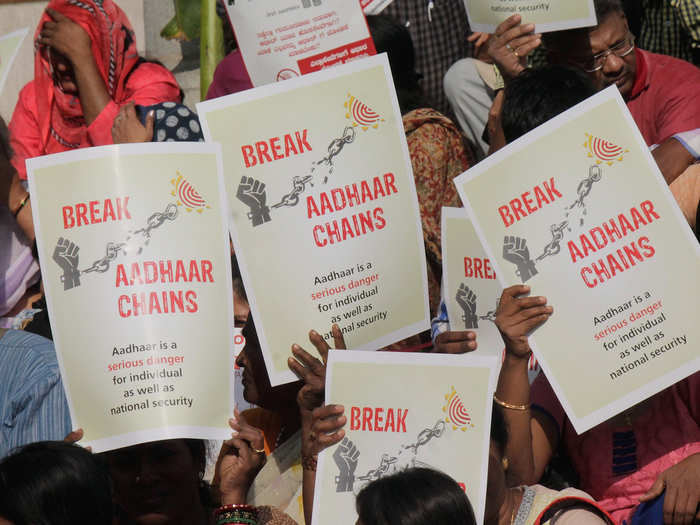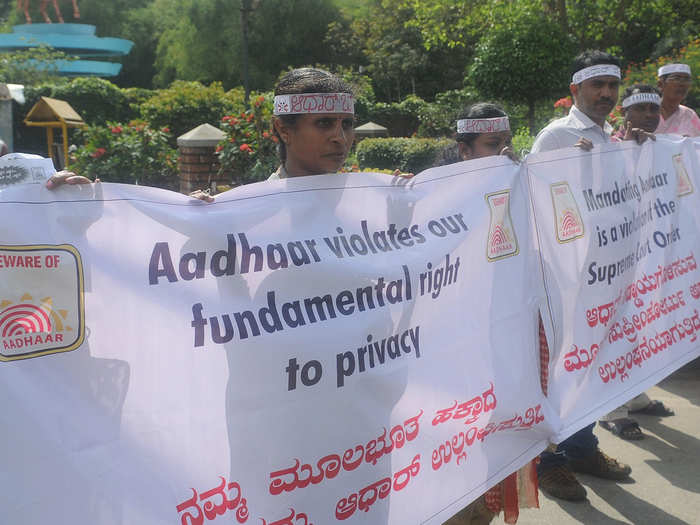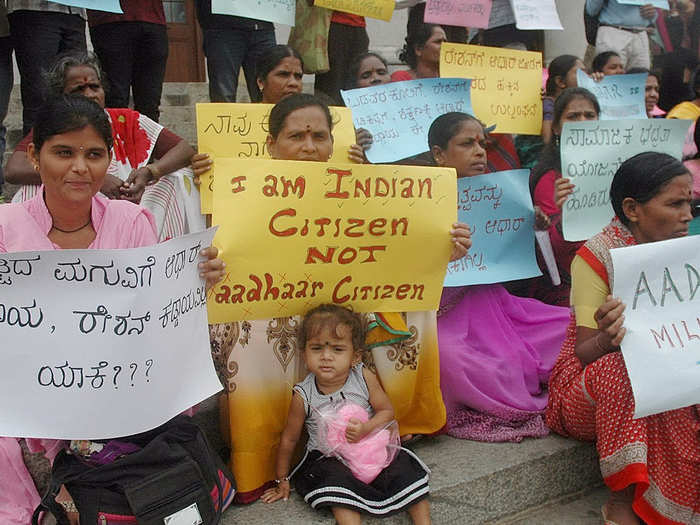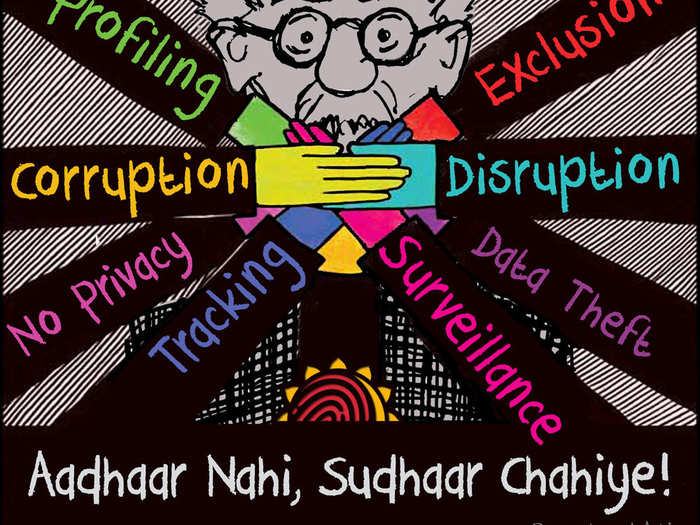- Home
- slideshows
- The agency behind the world’s largest biometric identification system drops its plan to monitor online activity
The agency behind the world’s largest biometric identification system drops its plan to monitor online activity
Undermining the Aadhaar’s original intent

Violating freedom of speech

(Source: BCCL)
UIDAI’s aim was to conduct a ‘sentiment analysis’ and ‘flag any discrepancy in sentiments’ trend’. In addition to spotting these attitudes, the companies would also then have to come up with ways to address and ‘neutralise negative sentiments’.
Even though UIDAI stated that they wouldn’t be monitoring private conversations, only what has been publicly posted — the agency’s proposed social listening tool still violates an individual’s freedom of speech.
“The right includes freedom to hold opinions without interference and to seek and receive and impart information and ideas through any media and regardless of frontiers,” according to the Indian Constitution.
The Supreme Court has also widened the definition to mention that the government has no monopoly on electronic media.
Setting the stage for mass surveillance

Members from Right to Food Campaign Network hold campaign 'Beware of Aadhaar' (Source: BCCL)
UIDAI’s tender outlined that whichever agency got selected, would also have to segregate the collected data into ‘problematic and non-problematic’ conversations in order to find instances which negatively impact the Aadhaar brand.
The accumulation of all this material would then be submitted to the agency on a weekly basis as a part of ‘online reputation management reports’.
In China, similar mass surveillance techniques are used for ‘social supervision’ — including tracking message on WeChat, the country’s most popular messaging service akin to WhatsApp.
Even though there are over 750 million internet users in China, their online and digital communication is strictly regulated. Where WhatsApp promises encryption, WeChat conversations are saved on servers for up to 6 months. Even if a user deletes a particular chat, it can be retrieved by Tencent — the app’s publisher — at any time, especially if the government suspects illegal activity.
Violating the right to equality

Cross section of citizens from Bengaluru holding a protest demonstration against Aadhaar in front of Town Hall (Source: BCCL)
Categorising conversations as ‘problematic and non-problematic’ also violates the Constitutional right to equality. Nobody gets special privileges, but nobody gets discriminated against either because they happen to hold a different point of view — or ‘negative sentiment’.
The government is already in the cross-hairs for the newly amended Citizenship Act, which has been accused of discriminating against the population on the basis of religion — leaving a large proportion of the Muslim migrants without the right to apply for citizenship.
Violating the right to life and liberty

(Source: Rethink Aadhaar)
According to Article 21 of the Indian constitution, the right to life includes the right to social security. It dictates that one group of individuals cannot target or threaten the liberty of another.
It also includes the right to know or to be informed. The people are entitled to be privy to the affairs of the State and how they are being conducted.
See also:
Supreme Court clarifies that Aadhar isn’t mandatory for a new SIM connection
India’s Supreme Court has put the government on a timer to curb misuse of social media
Facebook, Twitter, Instagram and WhatsApp will be regulated in India — come January 15
READ MORE ARTICLES ON
Popular Right Now
Advertisement